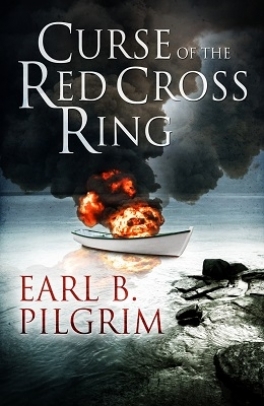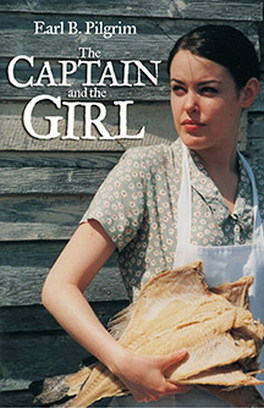"My mother told me about the good old days of long ago, which she’d heard about from her own mother and grandmother, when our ancestors were rootless, roaming mongrels known as the St. John’s water dogs. That was before some Lord High Mucky-muck across the ocean got fancy on us and started calling us Labrador retrievers. When we were the old water dogs, she said, we developed our famous, justly admired webbed toes to help us swim out in the oceans and ponds and rivers and rescue people all the time . . .” This is the heartwarming and hilarious memoir of Durf, a yellow Lab who thinks he is the boss of two cats. In fact, he’s pretty sure he’s the boss of the humans he lives with, too. Durf often dreams of performing heroic and awe-inspiring feats to prove to his family once and for all that he truly is the top dog in these parts. His faithful companions, a blue Persian male cat and a female tabby, can’t possibly understand what it’s like to be destined for greatness like Durf. They try to keep him grounded for his own good, but Durf knows in his noble dog’s heart that his greatest adventures are just around the corner. Inspired by true events, this is the consummate novel for dog and cat lovers alike. The True Confessions of a Badly Misunderstood Dog is Bill Rowe’s ninth book. Two of his books, Danny Williams: The War With Ottawa and The Premiers Joey and Frank: Greed, Power, and Lust, have appeared on the Globe and Mail bestsellers lists.
I broke the brutal truth to both felines as soon as my family left me alone with them. It would take way more than the two of them together, I said, to equal one dog like me in importance around here. And I stated frankly that I doubted if even a dozen more cats like them would be able to do the trick.
The little female walked over to me, slowly. I figured she wanted to bow down before me. But she reached up and batted me across the chops with her paw. If I was expecting a tap of acknowledgement of my overlordship, or even gratitude for my tolerance of her as underling, that wasn’t it. Those claws were out. I decided to tone down the formalities for the moment. “Hey, take it easy, spawn of a witch,” I said. “I’m only joking.”
“So am I only joking,” said the little tabby. “And here’s another jest.” She clobbered me again, this time across the snout. “I hope you appreciate how well my sense of humour is working today.” It made me sneeze, but I can assure you that smack didn’t tickle. She raised her paw again, curved needles protruding, and asked, “What did you mean by spawn of a witch?”
“I have no idea,” I said. “I heard it on TV during Halloween. They were talking about a cat. I didn’t mean anything by it. I was just saying. It seemed to fit. You don’t have to be violent all the time. In this house, under my leadership, if anyone mentions something you disagree with, we discuss it equally, until I lay down the law.”
“I’m not keen on speechifying,” she said. “I’m more into reacting violently. Especially when there’s absolutely nothing you can do about it when I belt you across the schnozzle. Because if you hurt me our family will kill you. See the pickle you’re in, you big dopey mutt?”
Suffice it to say I didn’t deem my first meet-and-greet day with the little female cat a total success.
Meanwhile, the large male cat was sitting over there looking nonchalant and indifferent, although it was hard to tell what his mood was from his broad blue face, snub blue nose, and big yellow eyes. He was a fluffy blue Persian cat called Xerxes, which That Man said everyone had to learn to pronounce right: zerkzeez. Then, as usual, he threw another piece of useless info at the family: the original Xerxes was an ancient Persian king, and his name meant “ruling over heroes.”
Our Xerxes, the Persian cat, was delighted with his name. It was completely appropriate for his exalted position in life, he said, if you considered a big oafish water dog and a scrawny little barn cat to be heroes worth ruling over.
At his mention of “scrawny little barn cat” I saw the female tabby moving stealthily toward Xerxes. I figured she meant to punish him as she’d done to me. But before she reached him, Xerxes concluded his remarks by saying that the important part of his name for everyone to keep foremost in mind all the time was the “ruling” part and to govern themselves accordingly.
That made the little female cat stop and snigger. Then she agreed that Xerxes was a perfect name for him because she’d heard Nice Girl and Nice Boy talking about King Xerxes after they looked up the name in the encyclopedia: the Persian King invaded ancient Greece with the biggest army and navy in the world and couldn’t even defeat the tiny Greek army and navy, but got trounced by them. Then King Xerxes finished up his brilliant career by getting himself murdered by his own bodyguard. In other words, said the little female cat, he was a complete loser, so the name certainly did suit. “But don’t worry,” she told our Xerxes with an evil grin, “I’ll make sure you’re safe here, because I’m going to act as your bodyguard.”
Xerxes replied, “That will not be required, thank you.”
The little female cat was called Joey Smallwood. Either she came with the name or That Man was behind it. I heard him say that, in spite of her small size, she immediately started ordering around everybody in sight, just like the original Joey. He was right about that. Our Joey’s favourite line of reasoning in any discussion, though, as she’d promised, was the clout across the nose with a paw.
Early on, I hid my jealousy when Nice Girl played with Joey, and I pretended to watch with enjoyment. The cat seized her sleeve in her front claws and then looked like she was trying to disconnect her hand from her wrist with about twenty quick thrusts of her hind paws. Nice Girl said that if little Joey were the size of a 300-pound tiger, that is, a hundred times bigger than she actually was, no other tiger, or even a lion, would stand a chance against her. I noticed, though, that Joey’s claws, which were often “accidentally” out when she cuffed me, were always drawn in whenever she roughhoused with Nice Girl.
Joey, whom our refined Xerxes had called “a scrawny little barn cat,” was . . . well, a scrawny little barn cat. Nice Girl had brought her home from the stable where she kept her Newfoundland pony. The little cat’s mother was famous as the best rat catcher for miles around, and Joey was fast learning Mom’s tricks of the trade when the stable decided to reduce their cat population. “I had to save her,” said Nice Girl. “I couldn’t just let them . . .” She didn’t finish her thought but went quickly on with the notion that Joey was very cute and active from an early age and would be a great little buddy for Xerxes.
“Cute? A buddy? How can such a smart girl be so wrong on both counts?” Xerxes wondered. “Oh, I love Nice Girl and everything, but first of all, what’s so cute about a kitten who was so ferocious when her own mother was nursing her out at the barn that the mother often had to jump up on a high windowsill just to get away from those needle-like teeth digging into her nipples?”
“I’m glad you heard about that,” said Joey, yawning wide to show her sharp little fangs. “You can’t say you weren’t forewarned.”
Xerxes moved farther away before saying, “And how could anyone think that a common tabby cat, with those very ordinary short-haired greyish stripes, could be a proper companion or, in the vulgar tongue, a ‘buddy,’ for King Xerxes, the gloriously long-haired blue Persian?”
“Didn’t you hear That Man telling Nice Girl that the pattern on the fur of tabbies was known as ‘grey tiger’?” asked Joey. “And that the beautiful design on our fur came from our direct ancestor, the African Wildcat? Well, you’ll find out that those are good descriptions as time goes on, especially the ‘tiger’ and ‘wildcat’ parts.”
I don’t know if That Man was right about where Joey’s fur came from. He was always yakking on with so much old hogwash about those cats that I often wished he would just button up. But I will say this. His “wildcat” description of Joey was dead-on. I first witnessed it the day she arrived, when she climbed the curtains at the windows and leaped from one shredded curtain to the next one. And I confirmed that she was definitely in the wildcat category our first Christmas together.
Joey climbed up the trunk of our Christmas tree at a mad dash and erupted from the top like a rocket blasting off and landed on all fours on the curtain hanging five feet away. During the dozen times I saw her doing it, she never knocked an ornament off the tree. But she made the branches shake to the point where the kids would grin at each other, when one of them saw her casually approach the tree, and whisper, “Earthquake alert.”
Xerxes was a big disappointment to Joey in most cat activities, especially the tree-climbing department. Xerxes always stood back, pretending he was not transfixed in admiration at Joey’s sprint up the trunk and her blast-off at the top. And he always responded to her urgings to join her by shrinking farther back and saying, “I’d love to. I really would. But I have too much respect for the Christmas tradition to taint it with vulgar activities. Besides, if I got that sticky sap all over my beautiful long fur it would break everyone’s heart.”
Christmas morning, Joey said to me, “That blue fluff ball over there is useless, so you’ll have to climb the tree with me. It’s no fun unless there’s two doing it.”
“Oh, I certainly will, Joey, when some wicked witch turns me into a stupid cat.”
“You don’t have to be a cat,” Joey said. “Even a dumb dog can do it. And you don’t have to do it fast like me. Climb nice and slow and you’ll be able to slide in between the branches. Plus you don’t have to leap off the top of the tree and land on the curtain the first time you do it.”
The truth is that I was almost tempted. I was really envious of Joey’s climbing skills, and I found it hard to admit to myself that she could do something that I couldn’t. But, of course, I was far too intelligent to fall for her wily persuasion. Besides, I wanted my darn Christmas present.
Nice Boy and Nice Girl were over on the sofa with Nice Woman opening gifts. That Man was sitting on the floor, his back to the tree, with a pile of gifts in front of him. He was reading the labels on them and calling out names. Where the heck was mine? I sauntered over to the tree and sniffed at a few. That Man said, “Don’t worry, Durf. I’ll find yours in a minute.”
With that, Joey sashayed by me. “Merry stupid Christmas, you big stunned St. John’s sewer mutt,” she said, whacking me on the nose right in the middle of a sniff. “You can’t catch me.” She took off for the tree trunk in a flash.
Well, that was it! I didn’t care what the rule against the annihilation of cats was around here, she was getting it! I lunged under the tree and reared up, forcing my head between the lowest branches. Yes! I could do this! But the top of my head wouldn’t seem to go through the gap. Unexpectedly, I found myself standing there with no tree over me. But I heard an ear-piercing roar from That Man and turned toward the sound.
I couldn’t see much of him except for the slippers on his feet. The rest of him was covered by Christmas tree. I didn’t know what had gone wrong, exactly, but something had. Instead of me climbing the upright tree as I’d intended, and nabbing that cat, the tree was lying across the living room floor and That Man was awkwardly crawling out from under it.
I looked at Nice Woman and the kids; maybe they could tell me what had just happened here. Their faces showed surprised and distressed expressions. But when That Man said, “I’m okay, no, no, I’m okay,” and stood up with his hair, pajamas, and dressing gown covered in tinselly icicles and green needles from the fir tree—a big sparkly snowflake was dangling from one ear—I knew I had added to the family’s Christmas joy. Because Nice Boy and Nice Girl started to titter and giggle, and although Nice Woman kept most of a grin off her face, I could see that she was struggling. That Man, on the other hand, was not tittering or grinning at all. He walked over to me without a word, grabbed me by the collar, and started to drag me out of the room.
Nice Boy and Nice Girl ran after us. “Dad, what are you doing?”
“What I’m doing is escorting this walking catastrophe out to the backyard.”
“Dad,” the kids cried, “this is Christmas!”
You’d think he would have already known that, with a Christmas tree falling on top of him. But it took their reminder to make him relent, and he grudgingly let me go. Even so, he gave me a dirty look every two minutes and grimly shook his head. He did that despite the fact that the whole family now had the extra fun of putting the tree up a second time and being able to decorate its branches again.
It has been a really, really long time since I read a book that caused me to both laugh out loud and get a little weepy, and Bill Rowe has done that with this book.-- Northeast Avalon Times --
This is an easy-to-read book that anybody who has ever had a dog can easily relate to. It’s a story with warmth and humour.-- Edwards Book Club --
Durf’s voice is full of affection and is, by his own lights, honest. And the tone is plausible and authentic. The writing is at its strongest when Durf is in some kind of exchange with That Man: ‘”No man is indispensable,” I heard That Man say one time about himself, and he got that right. But I never heard him say that no dog is indispensable.’-- The Telegram --
Dog persons, likely even cat persons, will love this book. They will haul Marley and Me from their bookshelves and replace it with [The True Confessions of a Badly] Misunderstood Dog.-- The Advertiser --
[Durf’s] misadventures are funny and sad, and always well-written. Definitely a book to read.-- The Guardian --























